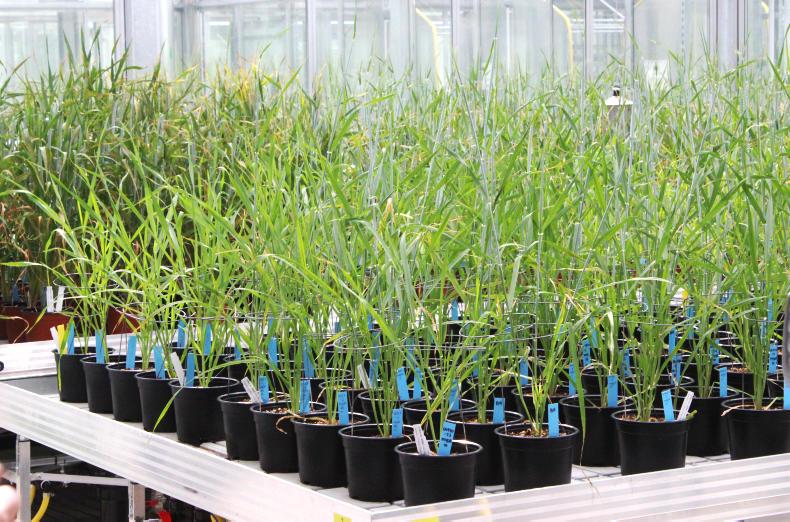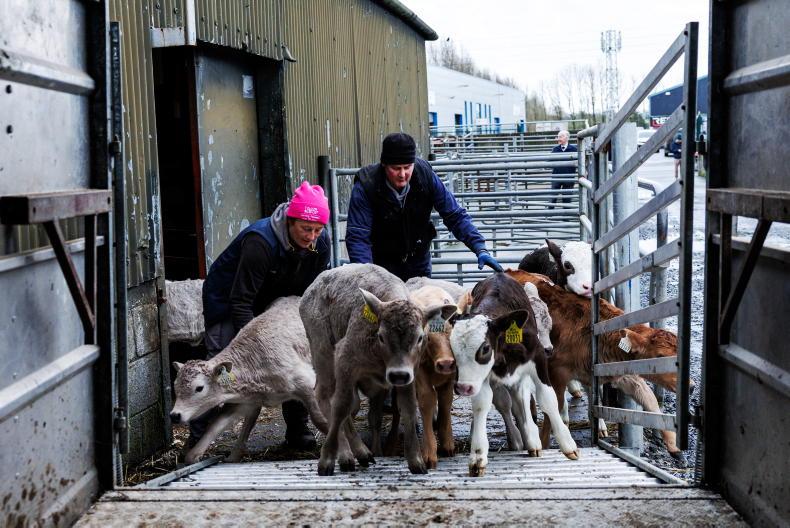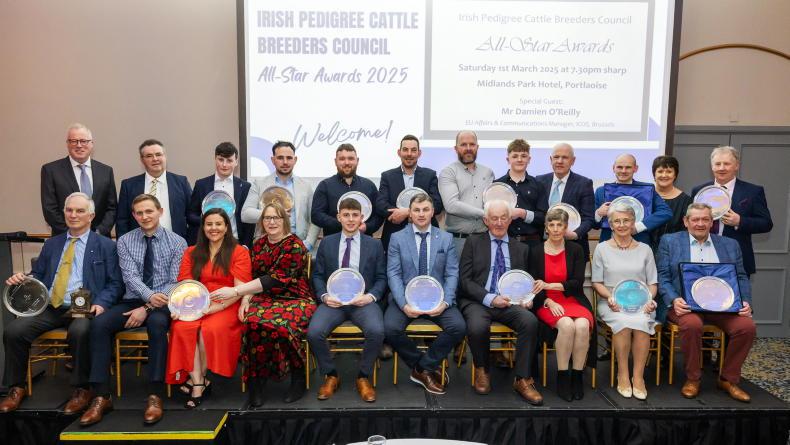In July of this year a group called Grow Scientific Progress submitted a proposal to update Directive 2001/18/EC through the launch of a European Citizens’ Initiative. This initiative enables a minimum of one million EU citizens to push for a change in EU law. This same initiative was used by pressure groups to call for a glyphosate ban in the EU.
The current initiative calls for changes in the laws governing gene editing to make the technology legal in the EU.
On page 42 of last week’s Irish Farmers Journal, Stephen Robb outlined the process of gene editing and the power and potential it could offer EU farmers.
And the potential benefits of this technology are not confined to crops, as it can also be very useful for grass breeding, livestock and even human health.
It could bring many benefits to society but a judgement by the European Court of Justice last year deemed it bound by our existing EU laws on GMOs and so the technology is heavily constrained.
Student initiative
The people behind Grow Scientific Progress are young Master’s students from eight EU member states studying at Wageningen University.
Their initiative aims to foster responsible agricultural innovation in the EU by updating its outdated plant breeding legislation.
It takes seven EU citizens living in at least seven different member states, who are old enough to vote, to launch such an initiative
They have backgrounds in food safety, food law, environmental studies, plant sciences, economics and biotechnology.
It takes seven EU citizens living in at least seven different member states, who are old enough to vote, to launch such an initiative.
If it gathers one million signatures with minimum thresholds in at least seven countries, the European Commission must examine the initiative and decide whether or not to take action on it.
Targeting the regulatory system
This European Citizens’ Initiative aims to update the regulatory system on new plant breeding techniques (NPBTs) in the EU.
It is seeking a clear distinction between mutagenesis-based NPBTs (changes in the characteristics expressed by a plant or organism) generated through gene editing and conventional GMOs, which are changed through the addition of external genetic coding.
They believe that the risks, if any, are associated with the product produced rather than the technique used to create it
They are also seeking a more product-based risk assessment of any plant or organism produced by gene editing, rather than using the current technique-based assessment.
They believe that the risks, if any, are associated with the product produced rather than the technique used to create it.
The group argues that the proposed changes to the Directive would result in lower assessment stringency for individual products, which are indistinguishable from those obtained through traditional breeding.
These new techniques (NPBTs) offer a valuable tool to help breed for more resilient crops which require less of all necessary resources to thrive
However, they propose that the strict risk assessment requirements for products with novel traits should be retained.
These new techniques (NPBTs) offer a valuable tool to help breed for more resilient crops which require less of all necessary resources to thrive.
This is increasingly important for farmers with fewer pesticides available and increasing demands to meet the challenges of climate change and food security.
The group aims to gather over one million signatures from EU citizens who support the initiative.
For us in Ireland we would need to get almost 9,000 signatures to fulfil our minimum requirement as a member state
In this regard, all farmers need to be aware of the potential of this science and help enable plant breeders and farmers in the EU to benefit from gene editing.
For us in Ireland we would need to get almost 9,000 signatures to fulfil our minimum requirement as a member state.
There are more than number of tillage farms alone but if farmers want access to this technology it is important to register a vote.
Simple process
The process is simple. Click here, preferably using Google Chrome, and click the ‘Sign now’ button on the right-hand side of the menu that spans across the top of the screen.
It will ask for details such as your country, nationality, name, date of birth etc, and it should take less than two minutes.
We in Ireland have a greater requirement for such tools so we should help drive this change.
We need genetic assistance to help us reduce our dependence on the range of crop inputs that we have come to depend on.
In short
Gene editing offers tremendous potential across all of agriculture. Irish farmers should sign an initiative to try to force change to EU law governing this technology.Voting is easy, takes about two minutes, and is done via www.growscientificprogress.org.
In July of this year a group called Grow Scientific Progress submitted a proposal to update Directive 2001/18/EC through the launch of a European Citizens’ Initiative. This initiative enables a minimum of one million EU citizens to push for a change in EU law. This same initiative was used by pressure groups to call for a glyphosate ban in the EU.
The current initiative calls for changes in the laws governing gene editing to make the technology legal in the EU.
On page 42 of last week’s Irish Farmers Journal, Stephen Robb outlined the process of gene editing and the power and potential it could offer EU farmers.
And the potential benefits of this technology are not confined to crops, as it can also be very useful for grass breeding, livestock and even human health.
It could bring many benefits to society but a judgement by the European Court of Justice last year deemed it bound by our existing EU laws on GMOs and so the technology is heavily constrained.
Student initiative
The people behind Grow Scientific Progress are young Master’s students from eight EU member states studying at Wageningen University.
Their initiative aims to foster responsible agricultural innovation in the EU by updating its outdated plant breeding legislation.
It takes seven EU citizens living in at least seven different member states, who are old enough to vote, to launch such an initiative
They have backgrounds in food safety, food law, environmental studies, plant sciences, economics and biotechnology.
It takes seven EU citizens living in at least seven different member states, who are old enough to vote, to launch such an initiative.
If it gathers one million signatures with minimum thresholds in at least seven countries, the European Commission must examine the initiative and decide whether or not to take action on it.
Targeting the regulatory system
This European Citizens’ Initiative aims to update the regulatory system on new plant breeding techniques (NPBTs) in the EU.
It is seeking a clear distinction between mutagenesis-based NPBTs (changes in the characteristics expressed by a plant or organism) generated through gene editing and conventional GMOs, which are changed through the addition of external genetic coding.
They believe that the risks, if any, are associated with the product produced rather than the technique used to create it
They are also seeking a more product-based risk assessment of any plant or organism produced by gene editing, rather than using the current technique-based assessment.
They believe that the risks, if any, are associated with the product produced rather than the technique used to create it.
The group argues that the proposed changes to the Directive would result in lower assessment stringency for individual products, which are indistinguishable from those obtained through traditional breeding.
These new techniques (NPBTs) offer a valuable tool to help breed for more resilient crops which require less of all necessary resources to thrive
However, they propose that the strict risk assessment requirements for products with novel traits should be retained.
These new techniques (NPBTs) offer a valuable tool to help breed for more resilient crops which require less of all necessary resources to thrive.
This is increasingly important for farmers with fewer pesticides available and increasing demands to meet the challenges of climate change and food security.
The group aims to gather over one million signatures from EU citizens who support the initiative.
For us in Ireland we would need to get almost 9,000 signatures to fulfil our minimum requirement as a member state
In this regard, all farmers need to be aware of the potential of this science and help enable plant breeders and farmers in the EU to benefit from gene editing.
For us in Ireland we would need to get almost 9,000 signatures to fulfil our minimum requirement as a member state.
There are more than number of tillage farms alone but if farmers want access to this technology it is important to register a vote.
Simple process
The process is simple. Click here, preferably using Google Chrome, and click the ‘Sign now’ button on the right-hand side of the menu that spans across the top of the screen.
It will ask for details such as your country, nationality, name, date of birth etc, and it should take less than two minutes.
We in Ireland have a greater requirement for such tools so we should help drive this change.
We need genetic assistance to help us reduce our dependence on the range of crop inputs that we have come to depend on.
In short
Gene editing offers tremendous potential across all of agriculture. Irish farmers should sign an initiative to try to force change to EU law governing this technology.Voting is easy, takes about two minutes, and is done via www.growscientificprogress.org.









SHARING OPTIONS